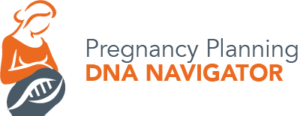
Most babies are born healthy. However, about 3-5% of babies have a birth defect or problem with development.1 This is true even for couples who have already had healthy children or don’t think they have anything in their background to raise concern. Family planning and parenting decisions are very personal; Information about genetic risk empowers parents-to-be with more choices and more time.
Standard prenatal care includes screening for a few of the most common birth defects, but more services are available even though many parents-to-be are unaware. Planning ahead gives parents-to-be more choices and more time.
Treatment
More treatments exist for rare diseases than ever before.2 Treatments can include life-saving medications, but also surgeries and other therapies to improve or manage symptoms. Many babies can benefit from these therapies if their diagnosis is known. For most diseases, the earlier the diagnosis is made, the better.
Family planning
Women or couples who learn about risks to a baby before pregnancy will have more options. Many don’t even realize that, for certain inherited diseases, couples could use the in vitro fertilization (IVF) process — even if they don’t have infertility — to test embryos. Other parents-to-be may choose to adopt instead of taking the chance of having a child with a severe disorder. Still others decide not to have children or if they already have children, they decide not to have more.
Testing a Pregnancy
Some pregnant women and their partners choose to test a pregnancy if they know the fetus is at risk. If a definite diagnosis is made, some will decide to end the pregnancy, an option that is available in many states when a fetus has a serious problem. Other expecting parents use the time during pregnancy to prepare for a child with special needs. They may research the condition and connect with support groups. Sometimes, the mother may need to deliver at a special medical center with advanced support for the baby with medical needs in the newborn period.
Informing Relatives
Different family members feel differently about caring for children with serious health problems. Sharing information may help identify other family members with higher risk and give them some of the options above.


Unfortunately, over 10% of women or couples have a genetic risk that is not identified by routine prenatal care.3 Mainstream Genomics fills the gap for women and their partners who are pregnant or considering pregnancy. Our online Pregnancy Planning DNA Navigator or Current Pregnancy DNA Navigator asks simple questions about health and family to generate a Personalized Screening Plan. Licensed genetic counselors, who are experts in genetic risk and testing, are also available to answer questions and provide support.
You can find more information about our services at
https://www.mainstreamgenomics.com
650-539-8842
Sources:
- CDC, National Vital Statistics Report 2015
- Ferriera, CR. The burden of rare diseases. Am J Med Genet. 2019
- Meschede, SD and Horst, J. The practical importance of pedigree analysis in women considering invasive prenatal diagnosis for advanced maternal age or serum screening. Prenatal Diagnosis 2000.
